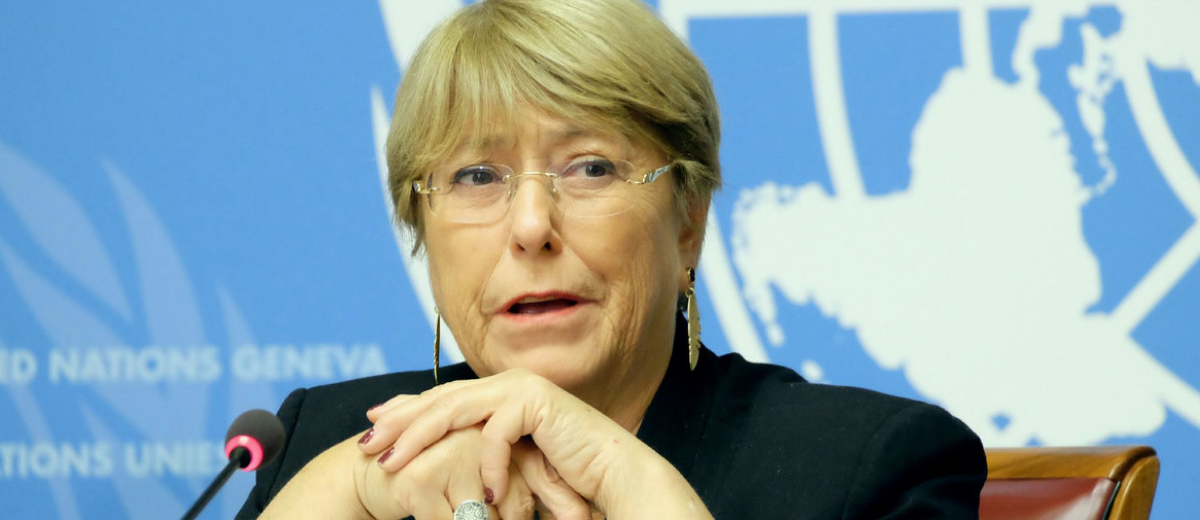
UN High Commissioner for Human Rights on Friday condemned a fresh wave of intercommunal violence
The UN High Commissioner for Human Rights on Friday condemned a fresh wave of intercommunal violence in the world’s youngest nation, South Sudan, that has left hundreds of dead across 28 villages in Jonglei State, according to local authorities. At least 300 people have been killed in a fresh wave of intercommunal fighting in South Sudan, 800 since February authorities say. Dozens of homes in Jonglei state were destroyed, warehouses belonging to aid groups were raided, and women and cattle were abducted.Three aid workers were also among those killed. A treaty aimed at ending the country’s six-year civil war was signed in February, but intercommunal violence has erupted a number of times since.
“The reports from Jonglei State are appalling”, Michelle Bachelet, United Nations High Commissioner for Human Rights, said of fighting that broke out between 16 and 17 May, forcing thousands to flee their homes. Bachelet stressed that this recurring pattern of violence, which continues to claim lives in South Sudan, has to stop. “I urge the Government to ensure measures are in place to investigate this violence and to ensure that those responsible are prosecuted, and that victims and their families have access to justice, truth and reparations.” She said.
“While politically motivated conflict has reduced in South Sudan, intercommunal fighting has increased, causing massive suffering for families who are trying to rebuild their lives after the devastation caused by years of civil war,” UN’s special representative for South Sudan said.
The latest outbreak of violence between pastoralists, who rely on livestock, and farm workers began on Saturday in the north-eastern town of Pieri, forcing thousands of people to flee to the bush. Health workers tell many of the victims have gunshot injuries. Some of the wounded have been transported to the capital hospital, Juba, for treatment. According to the United Nations Humanitarian Office, intercommunal fighting has been on the rise across South Sudan. In the first quarter of 2020, it was the main source of violence affecting civilians, having led to 658 deaths, 452 injuries, 592 abductions and 65 cases of sexual violence.In Jonglei State and the Greater Pibor Administrative Area, a series of attacks from mid-February to early March, left 22 civilians dead. Most of the 266 women and children abducted during the fighting have not been released from captivity.
The aid workers killed included a nurse with Médecins Sans Frontières and a South Sudan Red Cross volunteer.The International Committee of the Red Cross (ICRC) said its ability to respond to the crisis had been affected by the coronavirus pandemic because it had to limit bed numbers and restrict travel for both health workers and the wounded.Peacekeepers were interviewing survivors in the town when fighting broke out, the UN mission stated in a report.David Shearer, the UN’s special representative for South Sudan, said that the violence between the two groups must stop. “While politically motivated conflict has reduced in South Sudan, intercommunal fighting has increased, causing massive suffering for families who are trying to rebuild their lives after the devastation caused by years of civil war,” he said.
The region has suffered years of food insecurity and was severely hit by flooding in 2019. Intercommunal clashes and armed conflict are hampering humanitarian efforts to pre-position food, medicine and other supplies in the final weeks before the rains grow heavier and cut off road access to vulnerable communities. Ms. Bachelet – a former Head of State, leading Chile’s Government for two terms – has been vocal about what it will take to ensure durable peace. She most recently pressed South Sudanese authorities in mid-March to address escalating tensions. The nature of intercommunal fighting – long driven by tensions over access to water and grazing land for cattle – has taken on a militarized character in recent years, with military style tactics and military-grade weapons.“State authorities must act to end these cycles of retaliatory violence, including by holding those responsible to account and promoting peacebuilding between individual communities”, Ms. Bachelet warned.








[…] and direct action as offenses against the democracy. Engaging in such acts now means risking summary execution, torture or disappearance. In this democracy, nominal rights to protest exist but remain severely limited. Social protest is […]